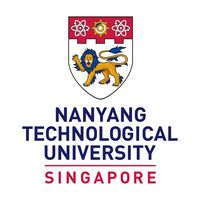Singapore's National Startup Incubator: A New Dawn for Innovation
October 29, 2024, 10:26 pm
In a bold move to bolster its startup ecosystem, Singapore is set to launch the National Graduate Research Innovation Program (Grip). This initiative, backed by the National University of Singapore (NUS) and Nanyang Technological University (NTU), represents a significant investment of S$50 million (approximately US$37.7 million). The aim? To cultivate innovation and entrepreneurship among the nation’s brightest minds.
The Grip program is not just another incubator; it’s a national platform designed to bridge the gap between scientific research and market application. It will train up to 300 startup teams over the next four years, nurturing a new generation of entrepreneurs ready to tackle real-world challenges. The initiative is a fusion of two existing programs: NUS’s Grip 2.0 and NTU’s Lean Launchpad. Together, they have already nurtured over 400 startup teams and nearly 160 spinoffs in the past six to seven years.
Launching in January 2025, the 12-month program aims to support around 100 deeptech projects annually. Participants will gain “founder-ready skill sets” and be matched with venture capitalists, paving their path to commercial viability. This is not just about funding; it’s about creating a vibrant ecosystem where ideas can flourish.
Deputy Prime Minister Heng Swee Keat emphasized the importance of cross-pollination among institutions. The program aims to enhance linkages between universities and research institutes, fostering collaboration that can lead to groundbreaking innovations. By integrating diverse strengths, the Grip program seeks to create a more compact and enabling ecosystem for deeptech.
But what does this mean for Singapore? It signifies a commitment to innovation. As startups develop solutions to pressing challenges, the potential for scaling these solutions beyond Singapore’s borders becomes a reality. The Grip program is designed to cultivate not just local talent but also to position Singapore as a hub for deeptech innovation in the region.
The vision extends beyond mere numbers. By 2030, the program aims to nurture 150 spinoffs, contributing to a robust startup landscape. This ambitious goal reflects a broader strategy to enhance Singapore’s competitiveness in the global market. The focus on deeptech—technology that requires significant research and development—positions Singapore as a leader in fields like artificial intelligence, biotechnology, and advanced manufacturing.
Moreover, the program aligns with Singapore’s broader goals of becoming a global innovation hub. As the world increasingly turns to technology to solve complex problems, Singapore is positioning itself at the forefront of this movement. The Grip program is a testament to the nation’s dedication to fostering a culture of innovation and entrepreneurship.
The integration of existing incubator programs into Grip is a strategic move. It consolidates resources and expertise, creating a more streamlined approach to nurturing startups. This is crucial in a landscape where agility and adaptability are key. Startups often face numerous challenges, from securing funding to navigating regulatory hurdles. By providing a supportive environment, the Grip program aims to mitigate these challenges, allowing entrepreneurs to focus on what they do best: innovating.
As the program unfolds, it will be interesting to observe the impact on Singapore’s startup ecosystem. Will it lead to a surge in successful spinoffs? Can it attract international talent and investment? These are questions that will shape the narrative of Singapore’s innovation journey in the coming years.
The launch of the Grip program also highlights a growing trend in global entrepreneurship. As more countries recognize the importance of fostering innovation, initiatives like this will become increasingly common. The focus on deeptech is particularly noteworthy, as it reflects a shift towards addressing complex, real-world problems through advanced technology.
In conclusion, Singapore’s National Graduate Research Innovation Program is more than just an incubator; it’s a beacon of hope for aspiring entrepreneurs. With a significant investment and a clear vision, the program aims to cultivate a thriving startup ecosystem that can compete on a global scale. As the world watches, Singapore is poised to make its mark as a leader in innovation and entrepreneurship. The future is bright, and the possibilities are endless.
The Grip program is not just another incubator; it’s a national platform designed to bridge the gap between scientific research and market application. It will train up to 300 startup teams over the next four years, nurturing a new generation of entrepreneurs ready to tackle real-world challenges. The initiative is a fusion of two existing programs: NUS’s Grip 2.0 and NTU’s Lean Launchpad. Together, they have already nurtured over 400 startup teams and nearly 160 spinoffs in the past six to seven years.
Launching in January 2025, the 12-month program aims to support around 100 deeptech projects annually. Participants will gain “founder-ready skill sets” and be matched with venture capitalists, paving their path to commercial viability. This is not just about funding; it’s about creating a vibrant ecosystem where ideas can flourish.
Deputy Prime Minister Heng Swee Keat emphasized the importance of cross-pollination among institutions. The program aims to enhance linkages between universities and research institutes, fostering collaboration that can lead to groundbreaking innovations. By integrating diverse strengths, the Grip program seeks to create a more compact and enabling ecosystem for deeptech.
But what does this mean for Singapore? It signifies a commitment to innovation. As startups develop solutions to pressing challenges, the potential for scaling these solutions beyond Singapore’s borders becomes a reality. The Grip program is designed to cultivate not just local talent but also to position Singapore as a hub for deeptech innovation in the region.
The vision extends beyond mere numbers. By 2030, the program aims to nurture 150 spinoffs, contributing to a robust startup landscape. This ambitious goal reflects a broader strategy to enhance Singapore’s competitiveness in the global market. The focus on deeptech—technology that requires significant research and development—positions Singapore as a leader in fields like artificial intelligence, biotechnology, and advanced manufacturing.
Moreover, the program aligns with Singapore’s broader goals of becoming a global innovation hub. As the world increasingly turns to technology to solve complex problems, Singapore is positioning itself at the forefront of this movement. The Grip program is a testament to the nation’s dedication to fostering a culture of innovation and entrepreneurship.
The integration of existing incubator programs into Grip is a strategic move. It consolidates resources and expertise, creating a more streamlined approach to nurturing startups. This is crucial in a landscape where agility and adaptability are key. Startups often face numerous challenges, from securing funding to navigating regulatory hurdles. By providing a supportive environment, the Grip program aims to mitigate these challenges, allowing entrepreneurs to focus on what they do best: innovating.
As the program unfolds, it will be interesting to observe the impact on Singapore’s startup ecosystem. Will it lead to a surge in successful spinoffs? Can it attract international talent and investment? These are questions that will shape the narrative of Singapore’s innovation journey in the coming years.
The launch of the Grip program also highlights a growing trend in global entrepreneurship. As more countries recognize the importance of fostering innovation, initiatives like this will become increasingly common. The focus on deeptech is particularly noteworthy, as it reflects a shift towards addressing complex, real-world problems through advanced technology.
In conclusion, Singapore’s National Graduate Research Innovation Program is more than just an incubator; it’s a beacon of hope for aspiring entrepreneurs. With a significant investment and a clear vision, the program aims to cultivate a thriving startup ecosystem that can compete on a global scale. As the world watches, Singapore is poised to make its mark as a leader in innovation and entrepreneurship. The future is bright, and the possibilities are endless.

